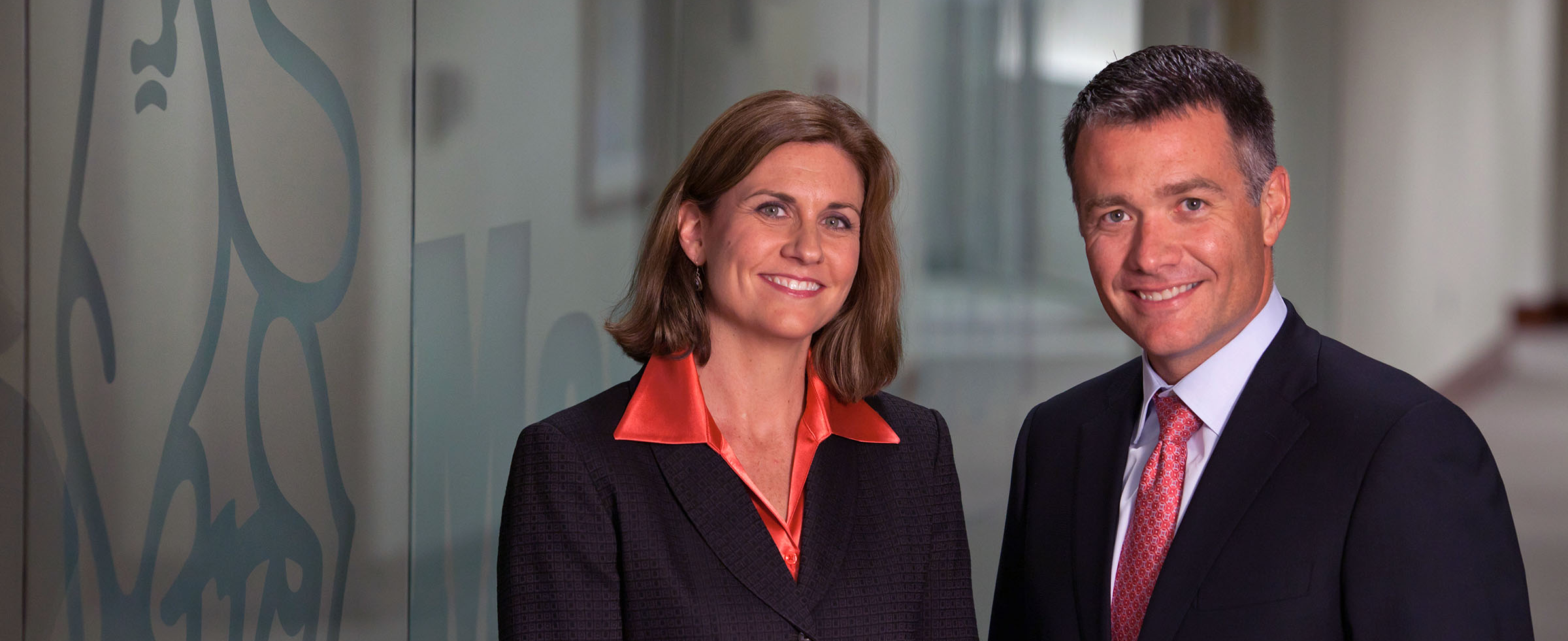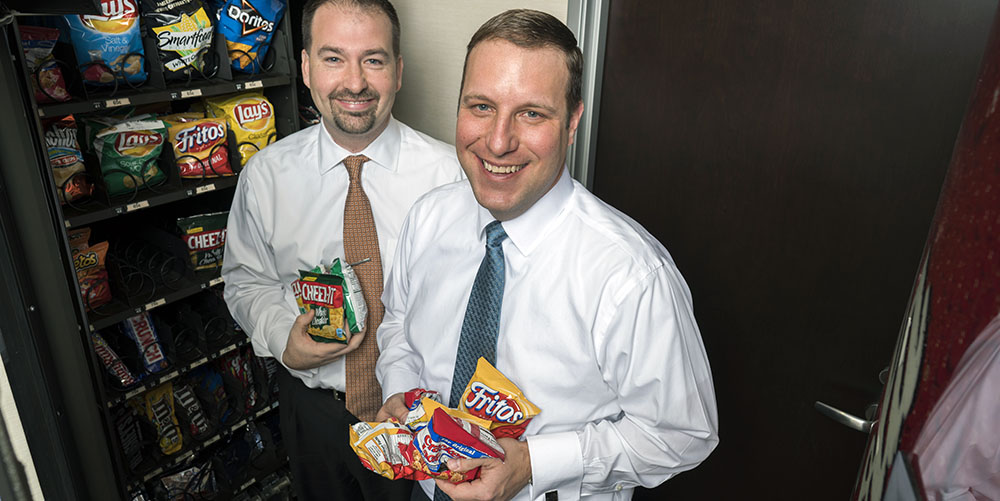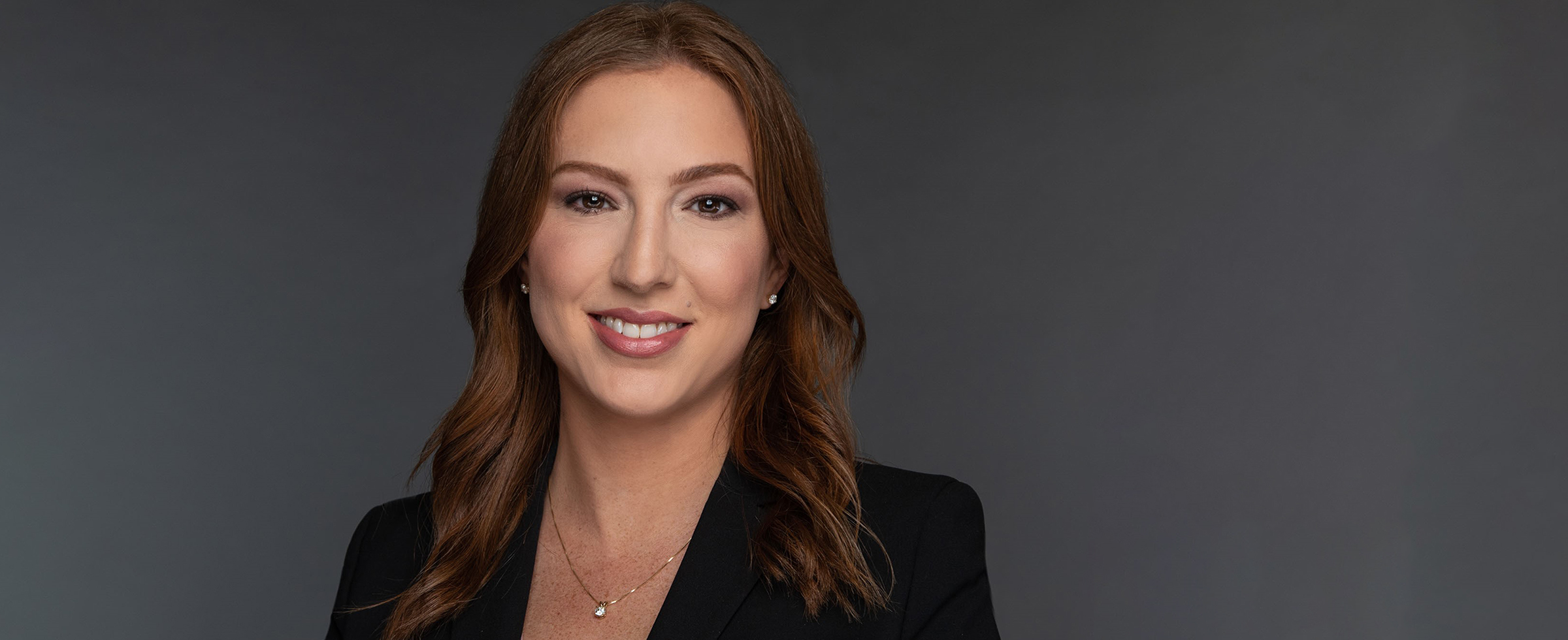Giving Like a grownup: Michael DuckworthAdvisor Profile

Michael Duckworth (left) and his business partner, Jennifer Haggerty (right), helped develop the Children’s Impact Giving Circle with The Pittsburgh Foundation.
AS A WEALTH MANAGER with the Private Banking and Investment Group at Merrill Lynch, Michael Duckworth spends his time helping adult clients manage a wide range of complexities, from retirement planning to charitable giving. But in March of last year, he started thinking about tapping into the philanthropic impulse with a much younger audience: his 8-year-old daughter, Elise, and his sons, Jack and Luke, 11 and 13.
The impetus? Duckworth had taken part in an Impact Giving Circle. Offered through The Pittsburgh Foundation’s Center for Philanthropy, Duckworth’s Circle had focused on Alzheimer’s disease and dementia. Over a four-month period, he and his fellow Circle members met with medical experts and Foundation staff to allocate strategic grants to organizations fighting the disease.
Afterward, Duckworth says, he couldn’t stop thinking about relatives and clients who had confronted the disease themselves.
“I was wishing that more people, especially my own children, could be part of an Impact Giving Circle,” he says. “It was a tremendous learning experience, made better by the group dynamic where participants come together to learn about an issue and make a real difference.”
Duckworth reached out to Kelly Uranker, director of the Center for Philanthropy, to brainstorm the possibility. Together they hit on the idea of offering a Circle to children whose parents were connected to his team in some way. In all, 12 children from seven families signed up. The families contributed $1,250 per child, of which $1,000 would be granted back to the community by the Circle. Duckworth and his business partner, Jennifer Haggerty, whose 15-year-old son, Ryan, also joined the Circle, matched the gift, providing a pool of $24,000 for the children to allocate to local nonprofits.
“Working with families that enjoy a certain level of success, we knew there would be parents looking for ways to teach their children that, with wealth, comes a responsibility to give back to others. The Children’s Circle is a way for us to actualize philanthropy as a family value at a deeper level than a weekend service project,” says Haggerty.
Since 2013, the Center for Philanthropy has organized Circles focused on topics such as health and the environment, poverty and public education. The partnership with Merrill Lynch, however, is unprecedented—The Pittsburgh Foundation is the only community foundation in the country that has partnered with advisors to offer Impact Giving Circles for children.
“We’ve worked closely with advisors from Merrill Lynch for many years," says Uranker. The Children’s Circle was a way to engage their clients in intergenerational philanthropy and to test whether this model could be repeated with other families.”
The idea couldn’t be more timely. The largest wealth transfer in history—$59 trillion in 94 million households—has been underway since 2007 and will continue through 2061, according to a 2014 report from the Boston College Center on Wealth and Philanthropy. The transfer will provide unprecedented opportunities for charitable giving and related tax benefits.
The Children’s Circle members visited organizations such as Sojourner House, the Homeless Children’s Education Fund, Light of Life Ministries and Rainbow Kitchen, all of which serve children whose families face significant challenges such as food insecurity and housing instability. Through exercises led by Foundation staffers, Michelle McMurray, Christy Stuber and Jennie Zioncheck, and by interacting directly with children their own age, participants learned how much they had in common—and how their Circle could help.
For Merrill Lynch client Sandra Kozel, it was a chance to expose her three children—Doran, 17, Ella, 16 and Kendall, 10—to situations different from those they experience now. Kozel and her brother were raised by a single mother who held three jobs in order to support them.
“We drank powdered milk from a box and received government assistance. I want my kids to know where I came from and to realize that they’re no different from anyone else,” Kozel says.
Ultimately, it’s the children who will decide how to distribute the Circle’s funds. They will meet this fall to allocate grants and make tough choices about funding priorities and amounts. For Kozel, the Children’s Circle offers the right amount of intensity and thoughtfulness necessary to foster empathy.
“Our society is so consumed with selfies. I really wanted to be a proponent of my kids being selfless,” Kozel says. “After our first site visit, my kids were smiling bigger and brighter than on any Christmas Day. They realize that when you help others, you’re benefiting as much as you are helping.”
Original story appeared in Forum Quarterly - Summer 2016





